JACOB'S BLESSING
The blessings of Jacob, bestowed on him at various times, were indeed many. First, with the use of craftiness, he was enabled to have the blessings from his father; and returning from Laban, he received a blessing from the Divine Presence, as it is written, "And God {Elohim} blessed Jacob" {Gen. 35:9}; still another blessing was bestowed on him by the very guardian angel of Esau; and, again, when he set out for Padan-Aram, his father blessed him in this wiser, "And God Almighty bless thee . . ." {Gen. 28:3}
Then Jacob, seeing he had all these blessings for his use, considered the matter, pondering, Now which among these blessings shall I first make use of? Then he decided at the time to avail himself of the last one, which was also the least of them. For, while he knew it to be weighty in itself, yet he regarded it as the least powerful in its prospect of dominion in this world. Therefore said Jacob: This blessing I shall make use of right now, the others I will keep in store for use in the time that I and after me my descendants shall have need for them, that is to say, the time when the nations will all come together in order to wipe out my posterity from the world.
Suitable to Jacob are the words: "All nations compass me about; verily, in the name of the Lord I will cut them off. They compass me about, yea, they compass me about. . . . The compass me about like bees" {Ps. 118:12}. Three times we see the words "compass me about", which correspond to the three other blessings: his father's first blessing, God's blessing, and third, the blessing of the angel.
Jacob said: When the time comes to go against the many kings and nations, then these benedictions will be needed; so shall I keep them in store for that time, but for dealing with Esau, this blessing will avail me.
He may be compared to a king having at his command great cohorts of soldiers led by able chieftains who stand prepared to engage in combat against the strongest foe. The king is told that a highway robber molests the countryside, and he gives orders: Let my gatekeepers be sent out against him. He is asked: Have you none others to send, of all your numerous cohorts, but these gatekeepers? He answers: They will do against the robber. A time will come when I shall need to engage with a mighty enemy, and against that time I must hold my troops and chieftains.
So said Jacob: Against Esau these blessings are sufficient, but the other blessings I must reserve until such time as my descendants will need them to take their stand against the great ones and rulers of the earth.
When that time comes, these blessings will begin to work, and the world will be in harmony. From then on, the one kingdom will supervene over all the other kingdoms, and it will endure for ever, as it is written: "It shall break in pieces and consume all these kingdoms, but it shall stand for ever" {Dan. 2:44} . . . .
In connection with Jacob's blessings, Rabbi Hiyya quoted the verse, "A remnant shall return, even the remnant of Jacob" {Isa. 10:21}. Rabbi Hiyya said: This refers to the remaining blessings. It is further written, "And the remnant of Jacob shall be in the midst of many people, as dew from the Lord, as showers upon the grass" {Micah 5:6}.
Rabbi Yesa said: It is written, "A son honoureth his father and a servant his master" {Mal. 1:6}. Esau was a son such as this, for no man in the world did so greatly honour his father as Esau, which indeed gained for him dominion in this world. Eliezer the servant of Abraham exemplified the honour given by "a servant his master". Moreover, Israel became subject to Esau on account of the tears which Esau shed, and this to be so until, weeping, they return to the Holy One, be blessed, as it says, "They shall come with weeping" {Jer. 31:9}. At that time there will be fulfilled the prophecy: "And saviours shall come up on mount Zion, to judge the mount of Esau; and the kingdom shall be the Lord's" {Obad. 1:21}. Blessed be the Lord for evermore.
Then Jacob, seeing he had all these blessings for his use, considered the matter, pondering, Now which among these blessings shall I first make use of? Then he decided at the time to avail himself of the last one, which was also the least of them. For, while he knew it to be weighty in itself, yet he regarded it as the least powerful in its prospect of dominion in this world. Therefore said Jacob: This blessing I shall make use of right now, the others I will keep in store for use in the time that I and after me my descendants shall have need for them, that is to say, the time when the nations will all come together in order to wipe out my posterity from the world.
Suitable to Jacob are the words: "All nations compass me about; verily, in the name of the Lord I will cut them off. They compass me about, yea, they compass me about. . . . The compass me about like bees" {Ps. 118:12}. Three times we see the words "compass me about", which correspond to the three other blessings: his father's first blessing, God's blessing, and third, the blessing of the angel.
Jacob said: When the time comes to go against the many kings and nations, then these benedictions will be needed; so shall I keep them in store for that time, but for dealing with Esau, this blessing will avail me.
He may be compared to a king having at his command great cohorts of soldiers led by able chieftains who stand prepared to engage in combat against the strongest foe. The king is told that a highway robber molests the countryside, and he gives orders: Let my gatekeepers be sent out against him. He is asked: Have you none others to send, of all your numerous cohorts, but these gatekeepers? He answers: They will do against the robber. A time will come when I shall need to engage with a mighty enemy, and against that time I must hold my troops and chieftains.
So said Jacob: Against Esau these blessings are sufficient, but the other blessings I must reserve until such time as my descendants will need them to take their stand against the great ones and rulers of the earth.
When that time comes, these blessings will begin to work, and the world will be in harmony. From then on, the one kingdom will supervene over all the other kingdoms, and it will endure for ever, as it is written: "It shall break in pieces and consume all these kingdoms, but it shall stand for ever" {Dan. 2:44} . . . .
In connection with Jacob's blessings, Rabbi Hiyya quoted the verse, "A remnant shall return, even the remnant of Jacob" {Isa. 10:21}. Rabbi Hiyya said: This refers to the remaining blessings. It is further written, "And the remnant of Jacob shall be in the midst of many people, as dew from the Lord, as showers upon the grass" {Micah 5:6}.
Rabbi Yesa said: It is written, "A son honoureth his father and a servant his master" {Mal. 1:6}. Esau was a son such as this, for no man in the world did so greatly honour his father as Esau, which indeed gained for him dominion in this world. Eliezer the servant of Abraham exemplified the honour given by "a servant his master". Moreover, Israel became subject to Esau on account of the tears which Esau shed, and this to be so until, weeping, they return to the Holy One, be blessed, as it says, "They shall come with weeping" {Jer. 31:9}. At that time there will be fulfilled the prophecy: "And saviours shall come up on mount Zion, to judge the mount of Esau; and the kingdom shall be the Lord's" {Obad. 1:21}. Blessed be the Lord for evermore.
[full original text follows... ☟ ]
Volume 1:146a
א
לְאֲגָחָא בְּהוּ קְרָבָא. אַדְהָכִי שָׁמַע עַל לִסְטִים חַד קַפָּחָא, אָמַר, הַנֵּי בְּנֵי תַּרְעֵי יְהֲכוּן תַּמָּן. אָמַר לֵיהּ, מִכָּל לִגְיוֹנִין דִּילָךְ, לֵית אַנְתְּ מְשַׁדֵּר הָתָם אֶלָּא אִלֵּין. אָמַר, לְגַבֵּי הַהוּא לִסְטִים, דַּי בְּאִלֵּין. דְּהָא כָּל לִגְיוֹנוֹתַי וּמָארֵי קְרָבָא, אֶסְתַּלַּק לְגַבֵּי אִינוּן מְלָכִין תַּקִּיפִין, בְּיוֹמָא דִקְרָבָא, דְּאִצְטְרִיכוּ לִי, לֵיהווּ.
ב
אוּף הָכִי יַעֲקֹב אָמַר לְגַבֵּי עֵשָׂו, דַּי לִי הַשְׁתָּא בְּאִלֵּין בִּרְכָאן. אֲבָל לְהַהוּא זִמְנָא, דְּאִצְטְרִיכוּ לְבָנַי לְגַבֵּי כָּל מַלְכִין וְשַׁלִּיטִין דְּכָל עַלְמָא, אֲסַלֵּק לוֹן. כַּד יִמְטֵי הַהוּא זִמְנָא, יִתְעָרוּן אִינוּן בִּרְכָאן מִכָּל סִטְרִין, וְיִתְקַיַּים עַלְמָא עַל קִיּוּמֵיהּ כְּדְקָא יְאוּת, וּמֵהַהוּא יוֹמָא וּלְהָלְאָה, יְקוּם מַלְכוּתָא דָא עַל כָּל שְׁאָר מַלְכוּ אָחֳרָא, כְּמָה דְאוּקְמוּהָ, דִּכְתִיב, (דניאל ב׳:מ״ד) תַּדִּק וְתָסֵף כָּל אִלֵּין מַלְכְוָתָא וְהִיא תְּקוּם לְעָלְמַיָּא. וְהַיְינוּ הַהִיא אַבְנָא, דְּאִתְגְּזָרַת מִן טוּרָא דִי לָא בִידַיִן, כְּמָה דְאַתְּ אָמֵר (בראשית מ״ט:כ״ד) מִשָּׁם רוֹעֶה אֶבֶן יִשְׂרָאֵל, מַאן אֶבֶן דָּא. דָּא כְּנֶסֶת יִשְׂרָאֵל, כְּמָה דְאַתְּ אָמֵר, (בראשית כ״ח:כ״ב) וְהָאֶבֶן הַזֹּאת אֲשֶׁר שַׂמְתִּי מַצֵּבָה וְגו'.
ג
רַבִּי חִיָּיא אָמַר, מֵהָכָא (ישעיהו י׳:כ׳-כ״א) שְׁאָר יָשׁוּב שְׁאָר יַעֲקֹב, אִלֵּין בִּרְכָאן אָחֳרָנִין דְּאִשְׁתָּאֲרוּ, וּכְתִיב, (מיכה ה׳:ז׳) וְהָיָה שְׁאֵרִית יַעֲקֹב בַּגּוֹיִם בְּקֶרֶב עַמִּים רַבִּים (אלין ברכאן אחרנין כתיב, (מיכה ה׳:ז׳) והיה שארית יעקב) בַּגּוֹיִם כֻּלְּהוּ, וְלֹא בְעֵשָׂו בִּלְחוֹדֵיהּ, וּכְתִיב וְהָיָה שְׁאֵרִית וְגו', כַּטַּל מֵאֵת יְיָ.
ד
פָּתַח רַבִּי יֵיסָא וְאָמַר (מלאכי א׳:ו׳) בֵּן יְכַבֵּד אָב וְעֶבֶד אֲדוֹנָיו, בֵּן, דָּא עֵשָׂו. דְּלָא הֲוָה בַּר נָשׁ בְּעַלְמָא דְּיוֹקִיר לְאֲבוֹי, כְּמָה דְּאוֹקִיר עֵשָׂו לְאֲבוֹי. וְהַהוּא יַקִּירוּ דְּאוֹקִיר לֵיהּ אַשְׁלִיט לֵיהּ בְּהַאי עַלְמָא. (שם) וְעֶבֶד אֲדוֹנָיו, דָּא אֱלִיעֶזֶר עֶבֶד אַבְרָהָם (פ''ז ע''א) וְאוּקְמוּהָ, דְּהָא בַּר נָשׁ דְּהֲוָה אָתֵי לְחָרָן, בְּכַמָּה עוּתְרָא, וְכַמָּה מַתְּנָן וּנְבַזְבְּזִין, וּגְמַלִּין טְעִינָן. דְּלָא אָמַר לִבְתוּאֵל וְלָבָן, דְּאִיהוּ רְחִימוֹי דְּאַבְרָהָם, אוֹ בַּר נָשׁ אָחֳרָא דְּאָתֵי בְּפִיּוּסָא דְּאַבְרָהָם, אֶלָּא עַד לָא יְמַלֵּל מִלּוֹי, מַה כְּתִיב, (בראשית כ״ד:ל״ד) וַיֹּאמֶר עֶבֶד אַבְרָהָם אָנֹכִי, וּלְבָתַר אֲדֹנִי אֲדֹנִי, בְּגִין דְּיוֹקִיר לֵיהּ לְאַבְרָהָם הַהוּא יְקָרָא וְהַהוּא טִיבוּ, אוֹרִיךְ לֵיהּ לְכַמָּה זִמְנִין.
ה
כָּךָ עֵשָׂו, הַהוּא יְקָרָא דְּאוֹקִיר לֵיהּ לְאֲבוֹי, אוֹרִיךְ לֵיהּ כָּל הַנֵּי זִמְנִין דְּיִשְׁלוֹט בְּעַלְמָא דָא. וְאִינוּן דִּמְעִין, אוֹרִידוּ לוֹן לְיִשְׂרָאֵל בְּשִׁעְבּוּדָא דִילֵיהּ, עַד דִּיתוּבוּן יִשְׂרָאֵל לְקוּדְשָׁא בְּרִיךְ הוּא, בִּבְכִיָה וּבְדִמְעִין. דִּכְתִיב בִּבְכִי יָבֹאוּ וְגו', וּכְדֵין כְּתִיב, וְעָלוּ מוֹשִׁיעִים בְּהַר צִיּוֹן לִשְׁפֹּט אֶת הַר עֵשָׂו וְהָיְתָה לַיְיָ הַמְּלוּכָה. בָּרוּךְ יְיָ לְעוֹלָם אָמֵן וְאָמֵן.
ו
(בראשית כ״ח:י׳) וַיֵּצֵא יַעֲקֹב מִבְּאֵר שָׁבַע וַיֵּלֶךְ חָרָנָה. רַבִּי חִיָּיא פָּתַח וְאָמַר, (קהלת א׳:ה׳) וְזָרַח הַשֶּׁמֶשׁ וּבָא הַשֶּׁמֶשׁ ואֶל מְקוֹמוֹ שׁוֹאֵף זוֹרֵחַ הוּא שָׁם, הַאי קְרָא אוּקְמוּהָ. אֲבָל וְזָרַח הַשֶּׁמֶשׁ דָּא יַעֲקֹב, כַּד הֲוָה בִּבְאֵר שָׁבַע. וּבָא הַשֶּׁמֶשׁ, כַּד אֲזַל לְחָרָן, דִּכְתִיב, (בראשית כ״ח:י״א) וַיָּלֶן שָׁם כִּי בָא הַשֶּׁמֶשׁ. וְאֶל מְקוֹמוֹ שׁוֹאֵף
Labels: Book of Splendor, Ein Sof, Elohim, Gershom Scholem, Jacob's Blessing, Jewish mysticism, Kabbalah, Sefirot, Shekhinah, Torah, Tree of Life, Zohar


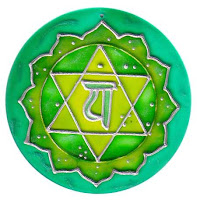

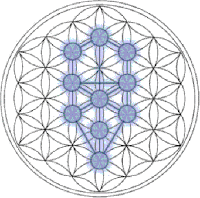

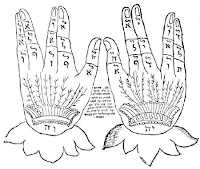

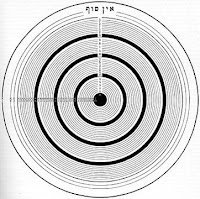
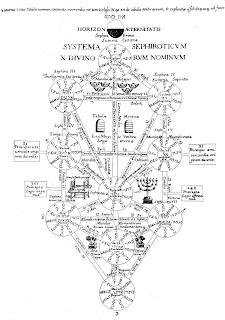
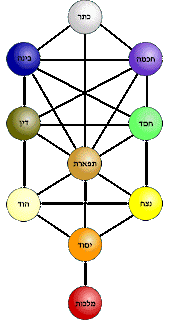
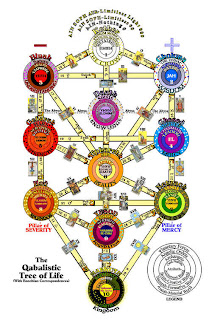

0 Comments:
Post a Comment
Subscribe to Post Comments [Atom]
<< Home